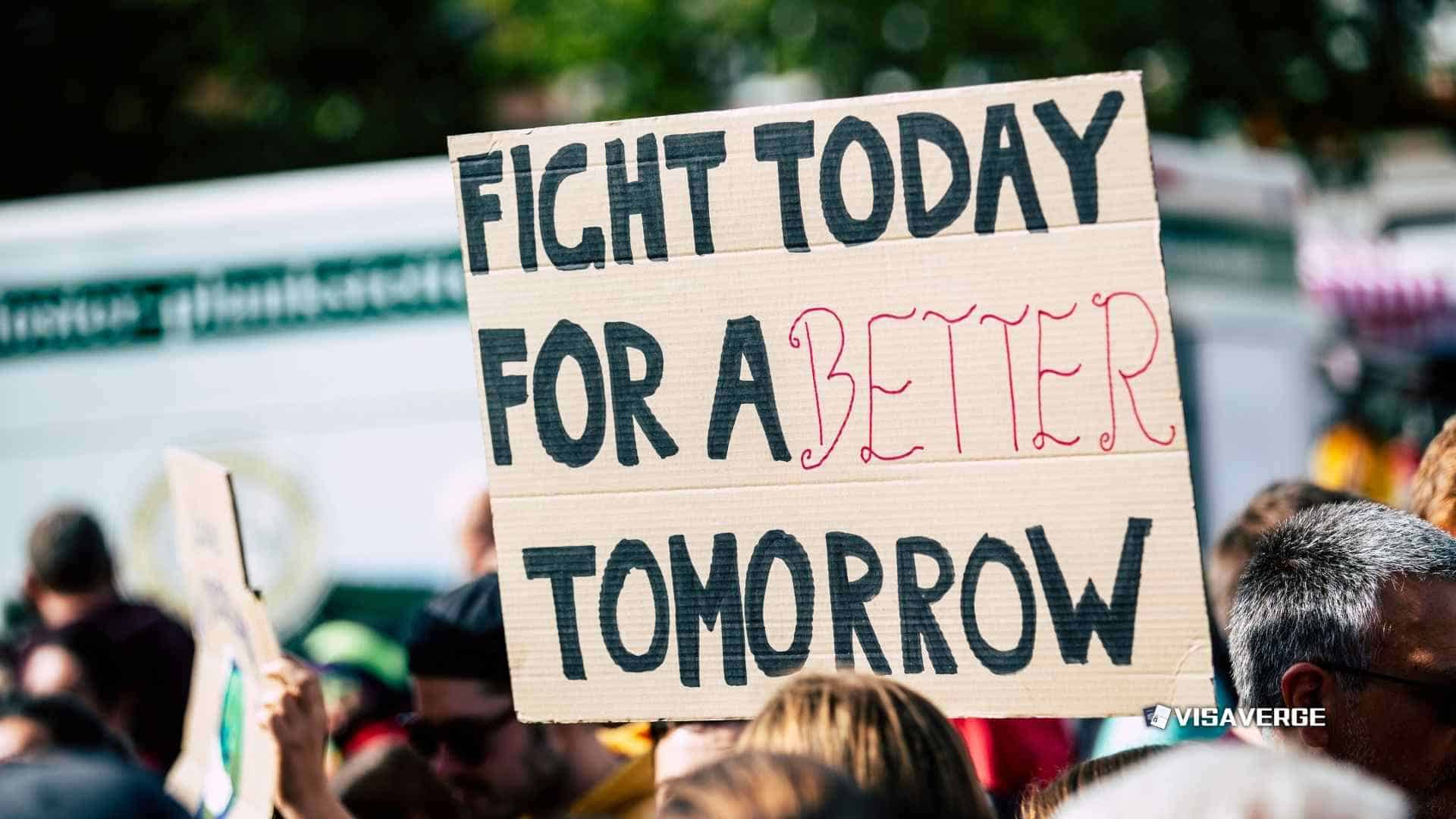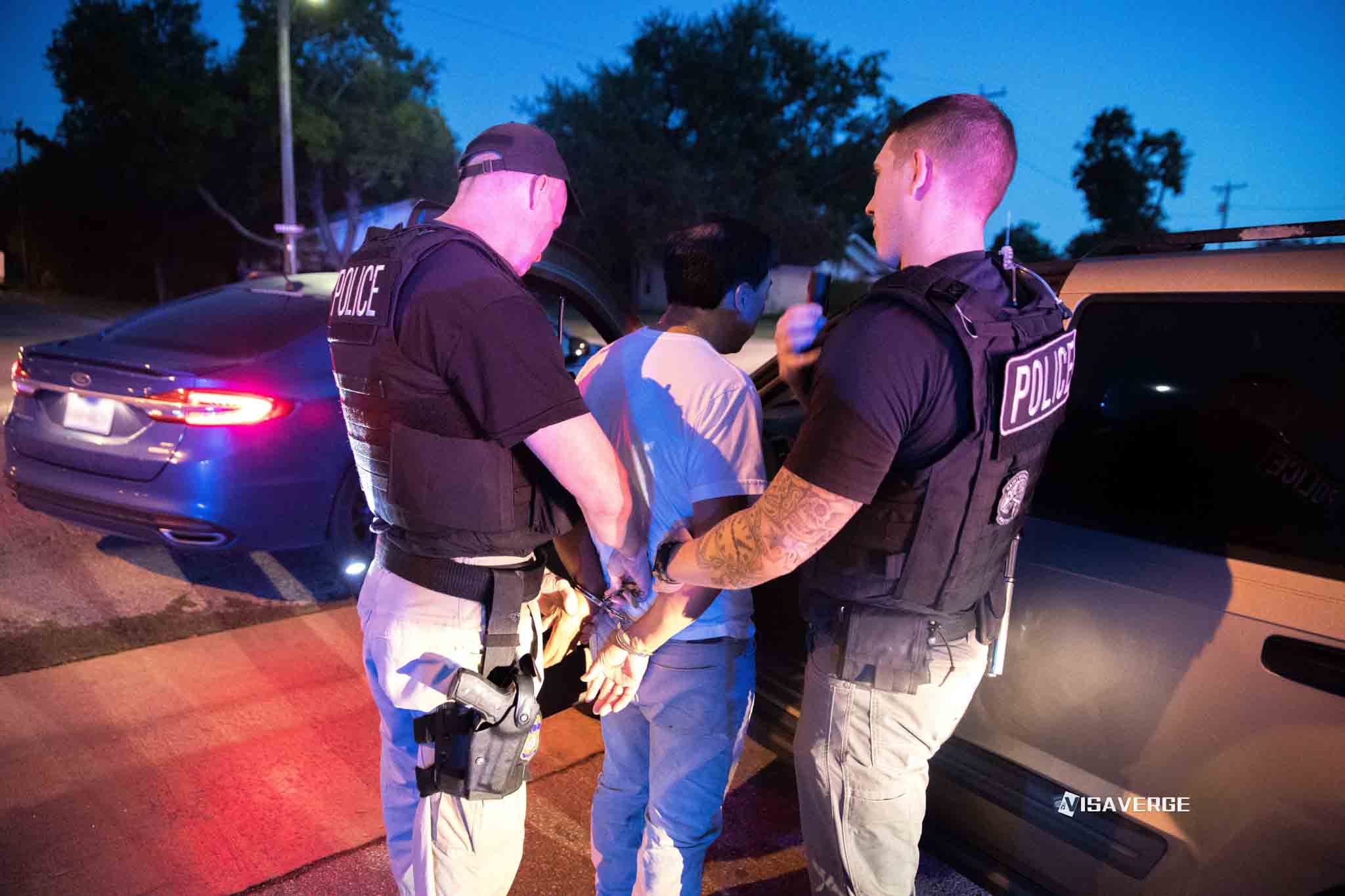(U.S.) The U.S. Citizenship and Immigration Services (USCIS) has tightened its review of the “good moral character” requirement for naturalization, directing officers to judge applicants through a broader, more demanding lens that considers the full picture of a person’s life. The policy memorandum was issued on August 15, 2025, and is in effect as of August 17, 2025, shifting the focus from a simple checklist of disqualifying acts to a “totality of circumstances” analysis that balances negative conduct with evidence of rehabilitation and positive contributions.
Under the updated guidance, USCIS officers are instructed to weigh both past wrongdoing and the steps a person has taken to move forward. The agency lists several types of evidence that may influence a finding of good moral character: past criminal offenses such as DUI convictions; compliance with court orders and probation; repayment of taxes and overdue child support; proof of rehabilitation or community service; steady employment and educational progress; and testimony from community members who can speak to character. The policy makes clear that good moral character is not a simple checklist and that officers must judge each case individually. Where the law imposes a permanent bar, that bar still controls. Otherwise, meaningful proof of reform may offset negative history.

Policy changes and legal basis
USCIS says the update aligns with the Immigration and Nationality Act, including INA 101(f) and INA 316(e), and draws on case law such as Hussein v. Barrett and Matter of Castillo-Perez, which support weighing both negative and positive factors. The policy is reflected in the USCIS Policy Manual’s chapter on good moral character, now updated to reflect this holistic standard.
For official guidance, see the USCIS Policy Manual, Volume 12, Part D, Chapter 9: Good Moral Character: https://www.uscis.gov/policy-manual/volume-12-part-d-chapter-9.
According to analysis by VisaVerge.com, the government’s shift away from a rigid list of disqualifiers is meant to be tough but fair, putting more weight on responsible behavior since any past errors and giving space for proof of growth. The memorandum, titled “Restoring a Rigorous, Holistic, and Comprehensive Good Moral Character Evaluation Standard for Aliens Applying for Naturalization,” signals that applicants will need to present a clear, well-documented story of reform and contribution to their communities.
Officers will still look closely at public safety and lawful behavior, but they are also told to credit concrete steps such as:
- finishing court programs,
- paying back taxes,
- maintaining steady work, and
- engaging in community service.
The update arrives as USCIS pursues broader integrity measures in 2025, including tighter background checks, enhanced review of social media, and reports of longer processing times. Joseph Edlow, who became USCIS Director in July 2025, has underscored the agency’s drive for a more rigorous citizenship test and review process, reflecting USCIS’s emphasis on accuracy and thoroughness in naturalization.
Impact on applicants
The good moral character requirement generally covers the five years before filing and continues until the oath of allegiance. The new guidance does not shorten that window; instead, it deepens the review within it.
For many applicants with minor offenses or financial troubles—such as pandemic-era loan defaults—the standard offers a clearer path to explain what happened and how they corrected course. USCIS highlights that meaningful rehabilitation can carry weight unless a permanent statutory bar applies.
Expect a more document-heavy process. Officers may request extra records to verify compliance and reform. To prepare, applicants can assemble materials that show daily responsibility and community engagement.
Common categories of helpful evidence
- Court documents showing case outcomes, probation completion, and compliance with orders
- Proof of tax filing and repayment plans, including resolved back taxes
- Records of child support paid up, with proof of addressing any past arrears
- Letters from employers, faith leaders, teachers, or mentors who can attest to good conduct
- Certificates for counseling, substance abuse treatment, or community service
- Education and employment records that show steady progress and stability
USCIS may issue Requests for Evidence (RFEs) when files lack detail about rehabilitation or ongoing obligations. Responding quickly and completely can be decisive. Full disclosure remains essential; hiding an old citation, tax issue, or probation term can hurt a case more than the issue itself.
Tell the whole story, back it up, and show change over time.
Practical effects and system-wide implications
Legal analysts note the standard’s strength lies in its flexibility, but they caution that outcomes will depend on consistent application by officers across field offices. Immigration attorneys say the policy will likely increase front-end work for applicants and representatives, as they gather broader proof of character. Some worry the deeper review could add to processing timelines already stretched by heightened screening in 2025.
At the same time, many experts view the approach as a fairer way to measure human growth, especially for long-term residents who have become strong contributors to their communities.
The policy will apply to a large stream of future cases. In fiscal year 2024, about 818,000 people became U.S. citizens. Nationally:
| Country | Number | Share (approx.) |
|---|---|---|
| Mexico | 107,000 | 13% |
| India | 49,000 | 6% |
| Total naturalizations (FY2024) | 818,000 | — |
With volumes at that scale, even small shifts in how officers judge good moral character can affect thousands of families each year.
What applicants and advocates should do
Behind the policy is a broader view of citizenship as a deep commitment to the United States, not just a checklist outcome. By instructing officers to weigh both harm and healing, USCIS signals that the path to citizenship remains open to people who have made mistakes but can show real change. At the same time, the agency emphasizes that serious offenses and statutory bars still carry full weight.
Practical steps to prepare:
- Gather comprehensive records early:
- Court completion letters, dispositions, and probation documents
- Tax returns, payment plans, and proof of resolved liabilities
- Child support payment records and arrears resolution documentation
- Collect credible character references:
- Letters from employers, faith leaders, teachers, mentors, or community organizations
- Document rehabilitation efforts:
- Certificates for counseling, treatment, community service, or completion of court programs
- Ensure consistency and clarity:
- Dates should align across documents; explanations must be honest and detailed
Attorney groups and community advocates are preparing trainings to help applicants assemble records early, including setting up payment plans for tax or support debts, seeking completion letters from courts, and collecting credible reference letters.
Agency outlook and final takeaways
USCIS’s focus on integrity will likely continue. Director Edlow has signaled interest in strengthening both the civics test and the broader review of applicants’ readiness for the rights and duties of citizenship. The agency is expected to monitor approval rates and processing times under the new good moral character framework and may refine officer training to improve consistency across regions.
For now, the message to applicants is clear and demanding:
- Prepare a complete record.
- Disclose everything.
- Show—over time—who you are today.
A person with a past DUI who completed treatment, followed court orders, paid taxes, and now volunteers or mentors youth, for example, can present a structured record of sustained reform. While each case turns on its facts, the guidance invites this kind of layered, time-tested proof.
Frequently Asked Questions
This Article in a Nutshell
USCIS tightened good moral character review in August 2025, requiring a totality-of-circumstances analysis. Applicants must document rehabilitation, taxes, child support, employment, and community service. Officers weigh negative conduct against positive steps. Prepare full records, expect Requests for Evidence, and disclose past issues; serious statutory bars still block eligibility.













